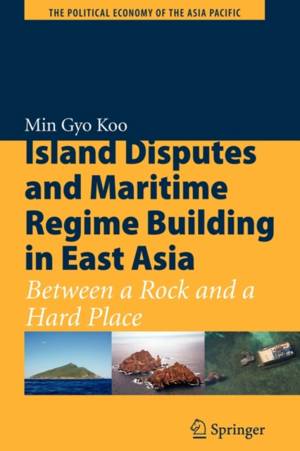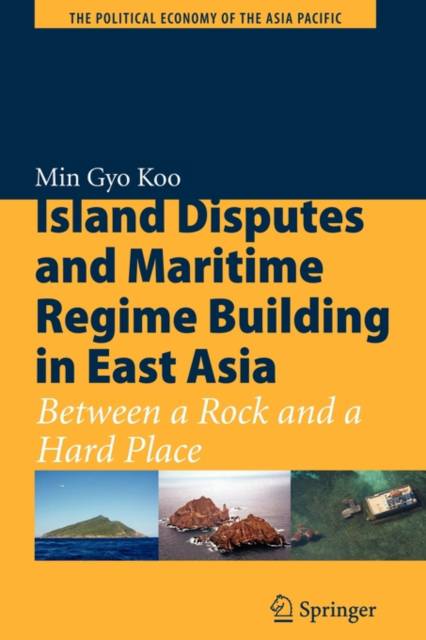
- Afhalen na 1 uur in een winkel met voorraad
- Gratis thuislevering in België vanaf € 30
- Ruim aanbod met 7 miljoen producten
- Afhalen na 1 uur in een winkel met voorraad
- Gratis thuislevering in België vanaf € 30
- Ruim aanbod met 7 miljoen producten
Zoeken
Island Disputes and Maritime Regime Building in East Asia
Between a Rock and a Hard Place
Min Gyo Koo
€ 76,95
+ 153 punten
Uitvoering
Omschrijving
islands has emotional content far beyond any material significance because giving way on the island issue to Japan would be considered as once again compromising the sovereignty over the whole Korean peninsula. For Japan, the Dokdo issue may lack the same degree of strategic and economic values and emotional appeal as the other two territorial disputes that Japan has had with Russia and the two Chinas - namely the Northern Territories/Southern Kurile Islands and the Senkaku Islands, respectively. Nevertheless, fishing resources and the maritime boundary issues became highly salient with the introduction of UNCLOS. Also, the legal, political, and economic issues surrounding Dokdo are all intertwined with Japan's other territorial disputes to the extent that concessions of sovereignty on any of these island disputes could jeopardize claims or negotiations concerning the rest. South Korea and Japan have forged a deeper diplomatic and economic partn- ship over the past decade. A new spirit of partnership after the landmark joint declaration of 1998 culminated in the successful co-hosting of the World Cup 2002. At the end of 2003 the two neighbors began to negotiate an FTA to further strengthen their already close economic ties. South Korea's decades-long embargo on Japanese cultural products has now been lifted, while a number of South Korean pop stars are currently sweeping across Japan, creating the so-called "Korean Wave" fever. A pragmatic calculation of national interests would thus suggest cooperative behavior.
Specificaties
Betrokkenen
- Auteur(s):
- Uitgeverij:
Inhoud
- Aantal bladzijden:
- 208
- Taal:
- Engels
- Reeks:
Eigenschappen
- Productcode (EAN):
- 9781441962232
- Verschijningsdatum:
- 6/05/2010
- Uitvoering:
- Paperback
- Formaat:
- Trade paperback (VS)
- Afmetingen:
- 156 mm x 234 mm
- Gewicht:
- 326 g

Alleen bij Standaard Boekhandel
+ 153 punten op je klantenkaart van Standaard Boekhandel
Beoordelingen
We publiceren alleen reviews die voldoen aan de voorwaarden voor reviews. Bekijk onze voorwaarden voor reviews.











